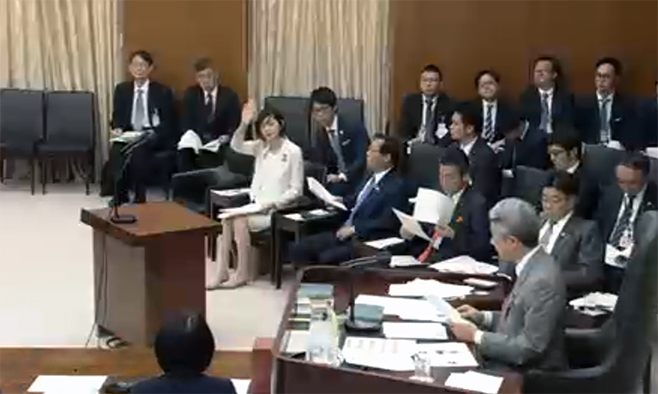The results of an investigation into payments made by pharmaceutical companies to doctors was presented to Japan’s House of Representatives’ Committee on Health, Labour and Welfare on Nov. 6, 2019. The investigation, conducted by the Ministry of Education, Culture, Sports, Science and Technology (MEXT), used the “Money for Docs” database created by Tansa and the nonprofit Medical Governance Research Institute.
Among its findings, MEXT’s investigation confirmed that seven practicing university medical professors each received over 20 million yen (about $182,000) in lecture fees and other payments from pharmaceutical companies in fiscal year 2016. In light of these practices, MEXT recommended that the universities in question review their side-business and ethics policies.
MEXT parliamentary secretary: “It is essential to ensure public trust”
Using the “Money for Docs” database, MEXT investigated doctors who received significant remuneration from pharmaceutical companies in lecture, article writing, and consulting fees. Representative Mitsunori Okamoto (Constitutional Democratic Party of Japan), who reported the results of the investigation, stated, “We can’t say that efforts to make known a wide range of information aren’t necessary. There should be limitations and rules. In particular, we need to consider whether it is appropriate for those who write treatment guidelines to receive large payments from a single company.”
In response to Okamoto’s comments, MEXT Parliamentary Secretary Sayaka Sasaki said, “Although each university sets its own side-business and ethics policies regarding payments [from companies], it is essential for university hospitals to ensure public trust. MEXT will urge relevant organizations, such as the Association of Japanese Medical Colleges and the National University Hospital Council of Japan, to hold discussions to evaluate the policies at each university.”

MEXT Parliamentary Secretary Sayaka Sasaki raises her hand to respond to a comment. Nov. 6, 2019; House of Representatives, Nagatacho, Tokyo; photo taken from the House’s deliberation broadcast.
29 doctors, mainly diabetes and cardiovascular disease specialists, paid over 15 million yen
MEXT’s investigation into practicing university medical professors identified 29 individuals who each received over 15 million yen (about $137,000) in remuneration from pharmaceutical companies in fiscal year 2016 (including the seven individuals described above who received over 20 million yen). Documents presented to the House committee by Representative Okamoto listed the 29 doctors’ names, workplaces, and how much money they had received.
Among the 29 doctors, 10 were specialists in diabetes, eight in cardiovascular disease. Both diseases have many patients and represent big markets.
From the diabetes specialists, Kawasaki Medical School Professor Kohei Kaku received the greatest sum: 28.99 million yen (about $264,000) from 153 payments from 20 companies. Among the eight cardiovascular disease specialists, Kitasato University School of Medicine Professor Junya Ako was the top earner, bagging 20.91 million yen (about $191,000) from 164 payments from 22 companies.
Influential doctor lists used in fierce market competition
Due to their many patients, diabetes and cardiovascular disease feed an industry with an annual combined worth of over 1 trillion yen: 500.4 billion yen (about $4.6 billion) for diabetes and 593.5 billion yen (about $5.4 billion) for cardiovascular disease (*2). According to someone familiar with pharmaceutical companies, the industry is a “red ocean,” meaning companies compete fiercely for market share. In effect, pharmaceutical companies use influential professors to advertise their products.
Lecture fees account for over 80 percent of doctors’ remuneration from pharmaceutical companies.
Companies host events at upscale venues such as luxury hotels and cover participants’ — doctors — travel expenses. The speakers are influential doctors, known as key opinion leaders (KOLs). Through these events, pharmaceutical companies hope that the next time attendees write a prescription, their drug’s name will be on it.
Some pharmaceutical companies create lists of KOLs to strategically plan their lecture events. A KOL list obtained by Tansa included information such as influential doctors’ graduation year, whether or not they serve on committees that determine treatment guidelines, and their activities in academic circles. The list also gave each doctor an “influence score” based on the above criteria.
(Originally published in Japanese on Nov. 6 and 7, 2019)
You can read more about Tansa’s “Money for Docs” investigation here, and freely access the “Money for Docs” database here (Japanese only).
All announcements
 Newsletter signup
Newsletter signup